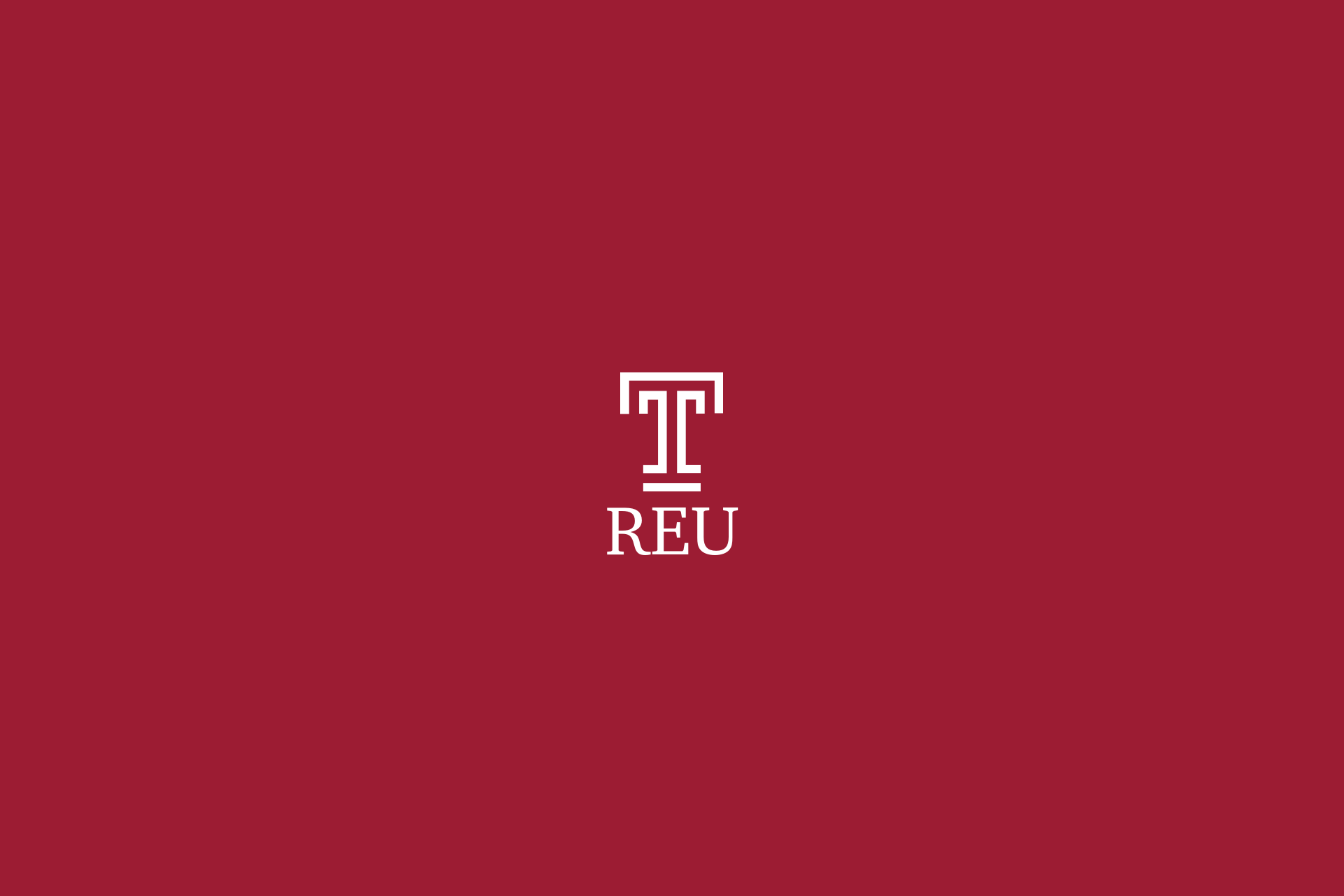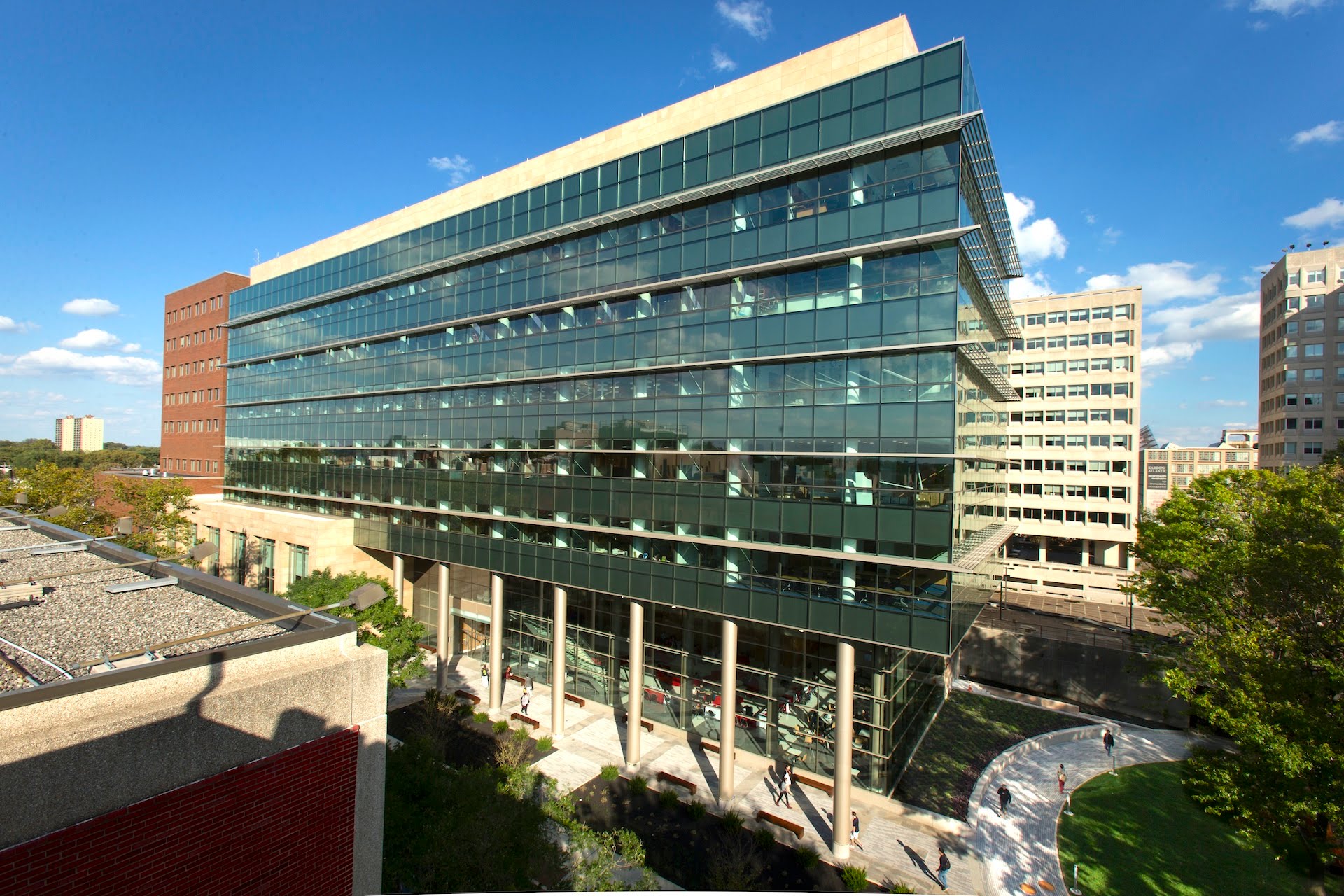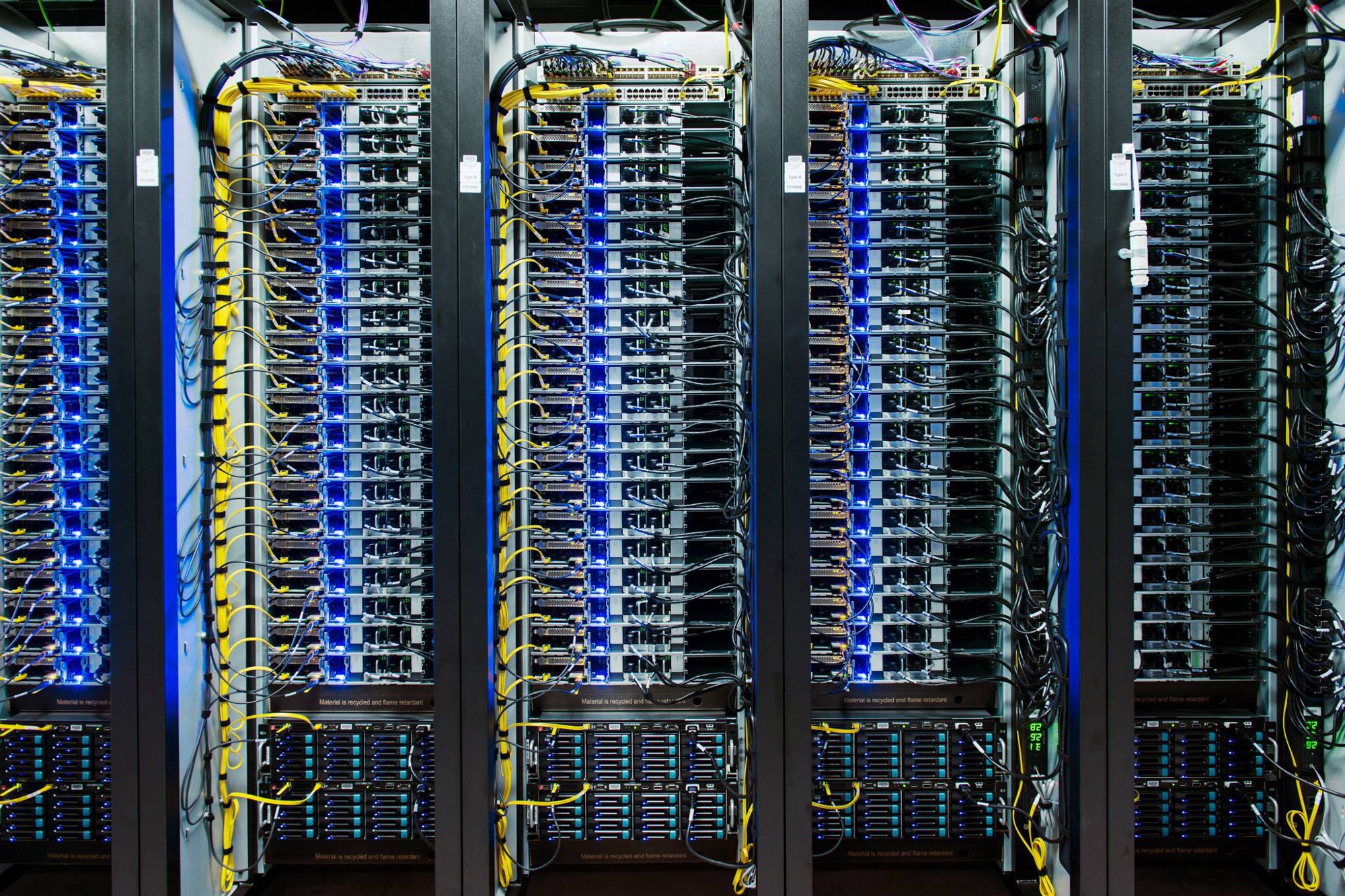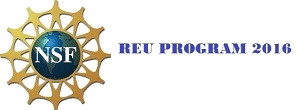The REU faculty mentors will assist students in finding an appropriate research project based on the interests expressed by students in their application.











Temple University will be hosting a REU program sponsored by the National Science Foundation during Summer of 2017. The goal of this program is to offer motivated undergraduate students from institutions across the nation with competitive research experience in mobile cloud computing topics. This is an 8 week residential program to be held on Temple University's main campus located in the city of Philadelphia. Besides working on cutting-edge research topics, participants will get to experience the social and cultural life of Philadelphia through organized events, and connect with students from all across the country. This is an incredible opportunity to gain hands-on experience working on next generation technologies. Through the REU program, students will acquire skills necessary to formulate and solve a research problem, preparing them for graduate studies. Students will also hone their scientific communication proficiency, both oral and written.
Team Temple REU 2017 (215)204-5774 TempleREU2017@temple.edu
Please follow these steps to prepare your application:
The faculty mentors involved in the REU site include: Dr. Eduard Dragut, Dr. Bo Ji, Dr. Pouya Ostavari, Dr. Justin Shi, Dr. Avinash Srinivasan, Dr. Chiu Tan, Dr. Anduo Wang Dr. Jie Wu. Applicants are urged to take a look at their websites to get a better idea about their research.
| Broad Area | Topics | |
|---|---|---|
| Topics Area 1 | Mobile Computing | Mobile computing for geological research, Security in Mobile Computing, Law Enforcemnt Applications in Mobile Computing |
| Topics Area 2 | Wireless Communications | Software Defined Cellular Networks, SDN Resource Optimization, Access Controls in DB defined Networks |
| Topics Area 3 | Cloud Computing | Opportunistic Mobile Cloudlets, Security Challenges in Cloud Computing, HPC in the Cloud |
| Topics Area 4 | Mobile and Cloud Computing Forensics | Forensics Challenges of Mobile and Cloud Computing, Forensics-as-a-Service |
| Phase | Information |
|---|---|
| Phase 1 | Project background (week 2-3). By entering this phase, the participant will focus on comprehensive reading on the background of their respective projects, as well as getting familiar with any specific software tools needed for their projects. Faculty mentors will help guide participants in choosing suitable publications related to their projects. We engaged our Graduate research assistants to help participants with specific tools. At the end of Phase 1, a short but detailed write-up that describes their selected projects and its main challenges will be handled to the faculty mentors, whom in turn will evaluate and give feedback to the participants. |
| Phase 2 | Project solution design and implementation (week 4-5). In Phase 2, each REU participant will work on developing possible system and algorithm design to address their research problem. To raise the level of creativity and originality of the proposed solutions, we encourage participants to develop and test their own ideas, rather than look for the correct answer from the mentors. This is important to developing the participant’s confidence in their own abilities. At the end of the week 5, in lieu of a write-up, all REU participants will present their respective projects and progress to the rest of the group. From one side, these group presentations will build relationships between participants and help them encourage each other, and from the other side, will give the participants the chance to enrich their research experience by exploring other research areas conducted by their colleagues. Similar to all previous phases, all participants have to complete a midterm-REU survey. We use this survey is to gain some perspective about potential challenges participants encounter, and will be used to improve the rest of the Site as needed. |
| Phase 3 | Experimentation and evaluation (week 6-7). The purpose of these two weeks is to let the participant perform experiments to evaluate the performance and applicability of their solution. With the help of graduate research assistants, the REU participants should be able to address some technical questions, for example, how to install and configure a particular simulator, or how to collect, analyze, and interpret data. At the end of this phase, the participants have to turn in a short write-up summarizing their results. |
| Phase 4 | Wrap up project (week 8). This is the final week. The participants have to finish up their project and prepare a comprehensive report describing their project challenges and research findings. Since the students already gained some writing experience from those shorter write-ups from the previous phases they wrote before, preparing the final report will be less stressful for the participants. All participants will also have to design a research poster summarizing their entire project and give a short presentation at the closing colloquium. Other faculty members will be encouraged to give the participants feedback. At the end of Phase 4, participants have to complete an Exit-REU survey to help evaluate what they have learned over the 8 weeks, as well as to help improve the Site experience for the next batch of participants. |
| Project | Project Details |
|---|---|
| Project-1 | Title: Prefetch File Based Memory Forensics with Rekall and Volatility Student: Hunter Dong Mentor: Avinash Srinivasan Abstract: Malware is constantly evolving as technology does. We hope to make headway on a taxonomy of viruses based on the dynamic-linked libraries (DLLs) and other dependencies called when running malicious code. We take a look at prefetch files which are generated on program startup and serve to reduce application startup time. They contain a list of dependencies used by a program, files and directories used on program execution, and other various metadata. We also take a look at memory forensic frameworks Rekall and Volatility, which can be used to help identify the functions of viruses run, and we aim to eventually use them to extract prefetch files and the contents within from a memory image. |
| Project-2 | Title: A Study of Single-sided HPC Communication Paradigm Student: Travis Evans and Kim Kosman Mentor: Justin Shi Abstract: End-to-end communication protocols have been the primary computing paradigms for distributed and parallel processing for the past decades. They also brought the nagging scalability and reproducibility challenges for large scale applications. Single-sided communication paradigms do not suffer these problems since they do not subject to the communication impossibility. While the application reliability using single-sided protocol is well established, its superior bare-metal HPC performance have not been demonstrated. This project compares a dense matrix multiplication application in MPI and Synergy in bare-metal single core, multicore and multiprocessor environments using NSF’s Chameleon and Temple University’s Owlsnest to demonstrate the overall advantages of a one-sided HPHPC protocol as implemented in Synergy3.0+. |
| Project-3 | Title: Access Control for a Database-Defined Network Student: Noemi Glaeser Mentor: Anduo Wang Abstract: Software-defined networking (SDN) allows the insertion of software that manages the network through a centralized controller. While the controller improves network management through features such as network-wide and higher-level abstraction, the urgent requirement of security is still less well-studied. Ravel, a database-defined controller, like many others currently exposes all network states to its users without implementing any security measures. This position paper proposes a novel way to implement access control, a specific aspect of security for SDN, in the setting of the Ravel controller. |
| Project-4 | Title: Cyber Psychical Systems: The Fusion of a Psychical and Technological World Student: Jaelin Jordan Mentor: Pouya Ostovari Abstract: The purpose of this article is to describe how Cyber-Psychical Systems are used in everyday applications that bring together the combination of technological and physical components. In this paper, we discuss the use of many wireless sensor networks on smartphones that can help the particular individual who has one from music recommendations to finding vacant parking spaces. On another note, we also take a look at non-human components such as road congestion detection. |
| Project-5 | Title: Configuring and Controlling a Software Defined
Network with a Pica8 Switch Student:Jason Loux Grad. Student: Dawei Li Mentor: Jie Wu Abstract: Current network protocols are exceedingly strict, making the administrative duties of network providers difficult. The switches that control a network rely on stringent definitions, usually defined by the company who designed the switch, with which they can forward packets. Software Defined Networking (SDN) is a concept which allows control over the operations of a switch via remote software applications. But just how much control can we exhibit while writing these applications? And how well does a particular switch respond to this control? Using a Pica8 3297 OpenFlow switch in conjunction with five PowerEdge R210 severs and a Cisco switch, we analyze the response time and the control that the switch maintains while controlled by the Ryu SDN framework. |
| Project-6 | Title: Encryption-based Privacy Protection for
Police Body-Worn Cameras Student: Daniel T. Martinez Mentor: Chiu C. Tan Abstract: Police body cameras are increasingly being used in many places. While body cameras do promote accountability, there are concerns over the loss of privacy as a result of these cameras. Police departments have tried to balance these two concerns by training officers on what incidents to record, and what not to record. However, the existing approach is error prone. This paper describes an encryption-based approach that protects privacy, while still ensuring relevant videos are always captured. Our preliminary investigations suggest that our approach is feasible on existing mobile hardware. |
| Project-7 | Title: Improving Timeliness of Information through Replicating Requests Student: Caleb Skinner Grad. Student: Yu Sang Mentor: Bi Ji Abstract: The Internet of Things has created an influx of data-generating devices. Applications that use these devices require the generated data to be transmitted in a timely manner. In this paper, we consider a Pull model, where remote clients will send requests to retrieve the information generated by multiple sources from the same random process. We assume that the update processes and response times of different sources are different. The timeliness, measured by age of information, depends not only on the freshness of information at the sources but also on the response times. Getting information from a fresh source with a large response time may lead to a larger age of information compared to getting information from a slightly less fresh source with a much smaller response time. Hence, an important objective is to optimize the timeliness of information obtained by the clients, accounting for the tradeoff between the freshness at the sources and the response times. We propose a replication scheme that improves age of information by replicating requests to multiple sources and waiting for a certain number of responses. We show through simulation that depending on the system parameters, the number of responses to wait for could be different for optimizing the information timeliness. |
| Project-8 | Title: Spatial-Temporal Campus Crime Pattern Mining from
Historical Alert Messages Student: Shela Wu Mentor: Eduard Dragut Abstract: In just the year of 2016, there has been a slew of violence-related events that have incited a flood of discussions revolving around issues such as gun control and domestic safety abroad. An issue that hits close to home is the concern of safety at urban universities. Studying the geo-temporal distribution of crime density within and around a university setting is a crucial factor in protecting students, faculty members, and administration, and creating a safe environment. This research project is the result of attempting to incorporate Google Maps with the crime data logged from Temple University’s Crime Log9 to track the spatialtemporal patterns of crime around campus. Google Maps is a freely available satellite map service that integrates a geographical information system (GIS) to web-based applications. |
This is a great hands-on opportunity to get directly immersed in active research by working closely with research faculty at Temple University. Through this program, you will gain experience in the design, implementation, and evaluation of a research project, as well as enhance your knowledge. In addition, each participant will receive:
Applicants must meet the following criteria:
Unfortunately if you have received your degree by the start of the REU, you are not eligible for the program. This includes a Bachelor's Degree from another program.
website: www.cis-linux1.temple.edu/~avinash/TUREU/ email: TempleREU2017@temple.edu